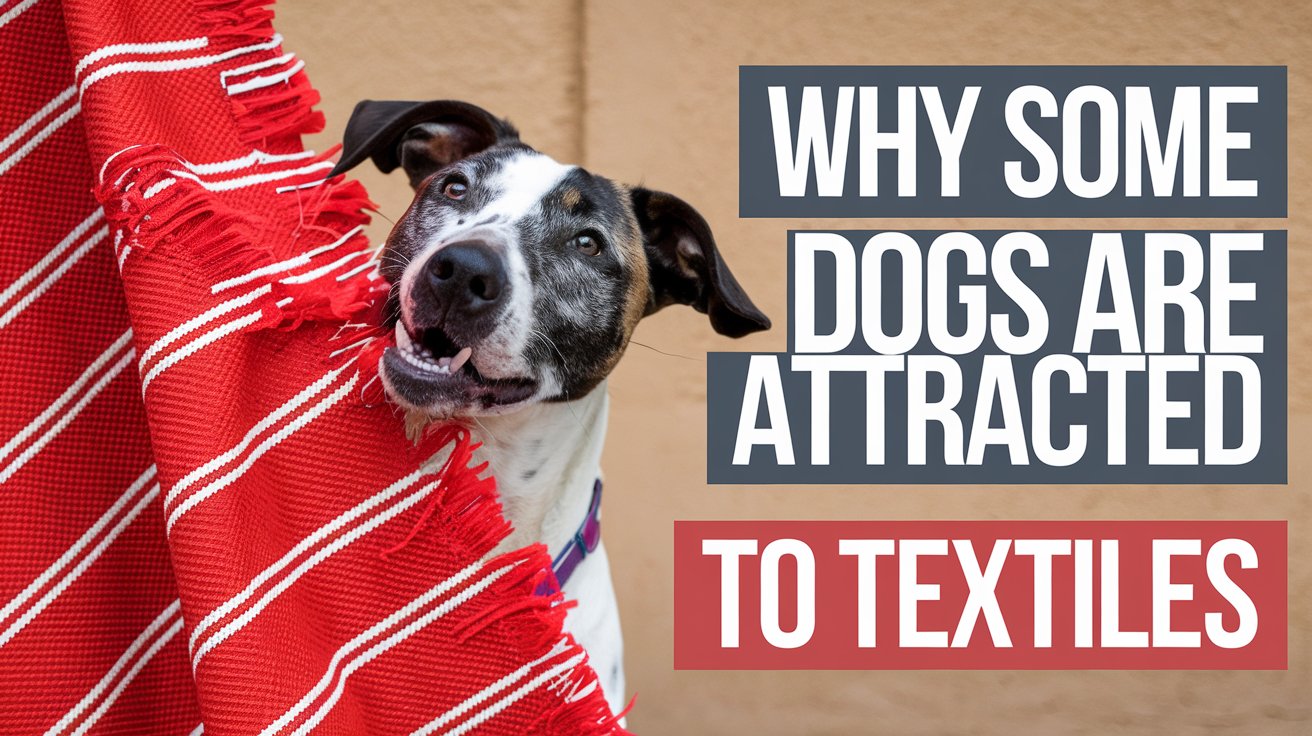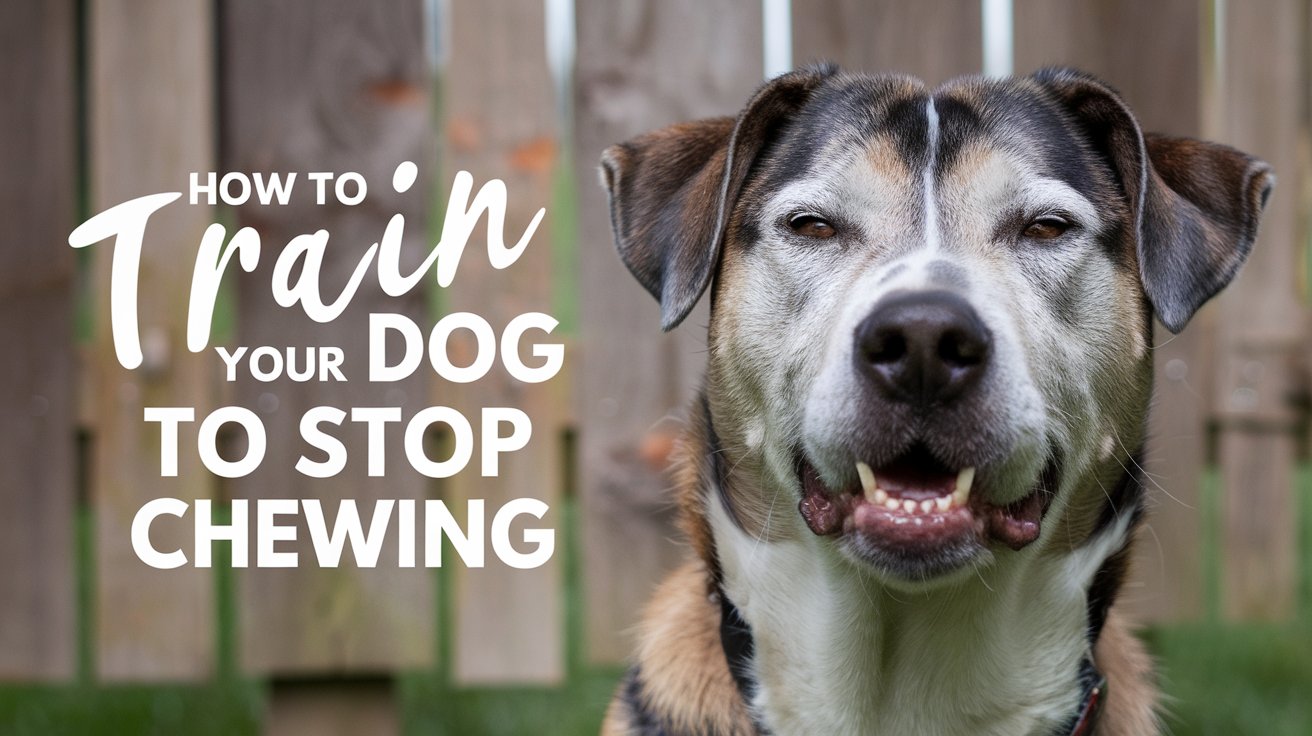
Why does my dog chew on the towel?
Dogs chew on a variety of things, from toys to shoes and, yes, even towels. Chewing helps them explore their world and relieve stress, but if your dog is constantly chewing on towels, it may indicate something more specific. Understanding whether this behavior is normal or concerning can help you take the right steps.
Common Reasons Why Dogs Chew on Towels
Teething in Puppies
Puppies experience teething just like human babies. When their teeth come in, it can be uncomfortable, and chewing on soft objects like towels can provide relief. Towels are easily accessible and have a texture that can feel soothing against their gums.
Separation Anxiety
Dogs are social animals, and if your dog feels anxious when you’re not around, it may chew on a towel to comfort itself. The scent of its owner often lingers on the towel, making it a source of security when it’s feeling stressed.
Boredom and Lack of Stimulation
Dogs need mental and physical stimulation. They might turn to towels for entertainment if they’re left alone or don’t have enough to do. Boredom can easily manifest as destructive chewing habits, with towels being an easy target.
Comfort and Scent
Towels, especially those you use regularly, carry your scent. Your dog may chew on them to feel closer to you when you’re not around. It’s their way of staying connected to their favorite human.
Medical Reasons for Towel Chewing
Nutritional Deficiencies
Sometimes, unusual chewing habits are linked to nutritional deficiencies. If your dog lacks certain nutrients, they may chew on non-food items like towels. It’s essential to ensure that your dog is eating a balanced diet.
Dental Issues
Older dogs may chew on towels due to dental pain. Towels are soft and can feel comforting on sore gums or teeth. If this is the case, it’s essential to have your dog’s dental health checked.
Behavioral Issues Leading to Towel Chewing
Anxiety and Stress in Dogs
Anxiety and stress can cause dogs to engage in compulsive behaviors, like chewing on towels. This behavior can be similar to how humans bite their nails or fidget when stressed. Recognizing the source of your dog’s anxiety can help address this issue.
Obsessive-Compulsive Disorder (OCD)
In some cases, dogs may develop obsessive-compulsive behaviors, and towel chewing might be part of this pattern. If your dog chews on towels excessively, it’s best to consult a professional to rule out OCD.

Why Some Dogs Are Attracted to Textiles
Soft Texture and Chew Satisfaction
Dogs love to chew on things that feel soft and satisfying in their mouths. The texture of towels can be particularly appealing, as it mimics the feel of soft prey, tapping into their instincts.
Carryover of Natural Instincts
Chewing is an instinct for dogs, and towels might mimic the sensation of chewing on prey. This behavior can be deeply rooted in their instincts, even if there’s no immediate prey available.
Is Chewing on Towels Dangerous for Dogs?
Potential Risks of Swallowing Fabric
While chewing on towels might seem harmless, it can be dangerous if your dog swallows pieces of the fabric. Ingesting towels can lead to digestive issues, including blockages, which could require surgery.
Digestive Blockages
A major risk of towel chewing is digestive blockages. If a dog swallows a large piece of a towel, it could get lodged in their intestines, causing pain, vomiting, and the need for immediate medical intervention.
How to Stop Your Dog from Chewing on Towels
Providing Chew Toys
One of the easiest ways to stop your dog from chewing on towels is to provide them with suitable chew toys. Offer a variety of textures and types to keep them engaged and satisfied.
Positive Reinforcement Training
Use positive reinforcement to encourage your dog to chew on appropriate items. When they chew on a toy instead of a towel, reward them with treats or praise.
Identifying Underlying Issues
Consulting a Veterinarian or Behaviorist
If towel chewing persists despite your best efforts, it may be time to consult a vet or an animal behaviorist. They can help identify any underlying issues, whether they’re medical or behavioral.
Ensuring Mental and Physical Stimulation
Providing your dog with plenty of mental and physical exercise can reduce the urge to chew on towels. Puzzle toys, regular walks, and playtime can help keep your dog occupied.
Offering Alternative Solutions
Safe Chewing Options
Offer your dog safe, durable chewing options like rubber toys, bones, or even frozen treats. This will keep them entertained and reduce the temptation to chew on towels.
Dog-Proofing Your Home
Keep towels and other textiles out of your dog’s reach to prevent them from developing bad habits. Dog-proofing your home is essential, especially if your dog tends to chew on inappropriate items.

How to Train Your Dog to Stop Chewing
Redirection Techniques
When you see your dog chewing on a towel, redirect their attention to a toy or appropriate object. Consistently doing this will teach them what is and isn’t acceptable to chew on.
Consistency and Patience
Training takes time, so be patient and consistent. Reinforce positive behavior and ensure everyone in the household follows the same training guidelines.
The Importance of Supervision and Boundaries
Creating Chew-Free Zones
Establish specific areas in your home where chewing is off-limits. This creates boundaries for your dog and helps them understand where they can chew and where they cannot.
Monitoring Your Dog’s Activities
Supervise your dog, especially when they’re young or if they’re prone to destructive behavior. Keeping an eye on them can prevent bad habits from forming.
What to Do if Your Dog Swallows a Piece of the Towel
Signs to Watch Out For
If your dog swallows part of a towel, watch for signs of distress such as vomiting, lethargy, or lack of appetite. These symptoms may indicate a blockage.
Seeking Immediate Veterinary Help
If you suspect your dog has swallowed a piece of a towel, contact your vet immediately. It’s better to be safe than sorry, as blockages can become serious quickly.
Preventing Future Towel-Chewing Incidents
Long-Term Behavioral Adjustments
By addressing the root cause of the behavior and offering alternative chewing options, you can prevent future incidents. It’s all about consistency and understanding your dog’s needs.
Reducing Anxiety Triggers
If anxiety is the cause of the towel chewing, try to minimize triggers like loud noises, being left alone for long periods, or sudden changes in routine. This can help reduce stress-related chewing.

Conclusion
Dogs chew on towels for a variety of reasons, from teething and anxiety to boredom and instinct. While it may seem harmless at first, it can lead to digestive issues if not addressed. Providing safe alternatives, offering plenty of mental stimulation, and training your dog can go a long way in curbing this behavior.
Frequently Asked Questions

I’m Haseem Ali, a passionate writer focused on dog diet, health, training, lifestyle, and care. I’m dedicated to sharing expert advice and practical tips to help fellow dog owners provide the best for their furry friends. When I’m not writing, I enjoy spending time with my own dogs and exploring new pet-friendly activities.

